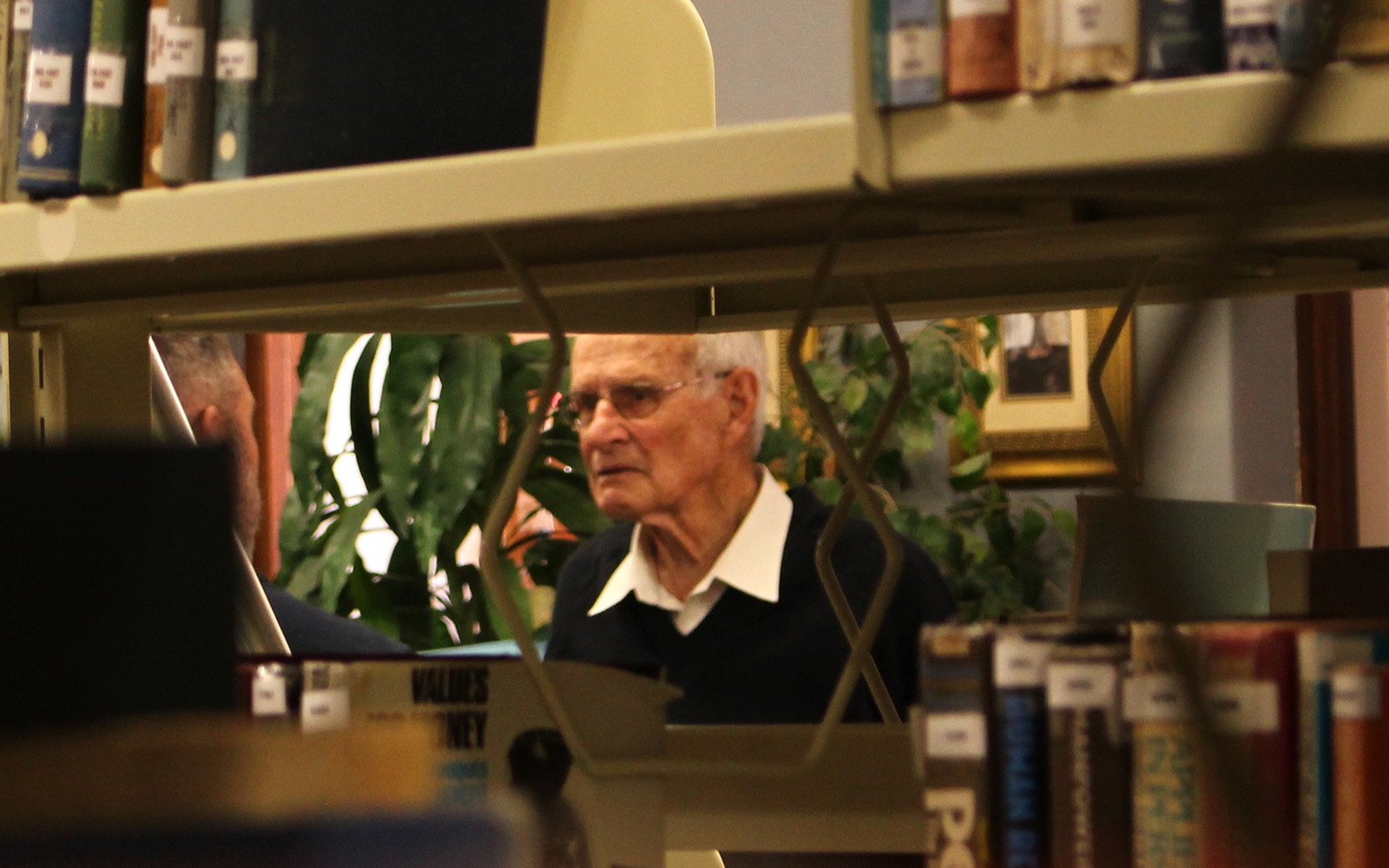Colonel Koos Kotzé, Saldanha Bay’s Father of Military Geography

A specialist in his field, he still enjoys the long view from his home by the sea.
A specialist in his field, he still enjoys the long view from his home by the sea
The Colonel was just a schoolboy, enjoying an outing to the seaside, when he first set foot on the shores of Saldanha Bay.
As he looked out at the harbour, with its lazy waves sheltered by nature from the wild West Coast winds, it struck him that this would be a fine place to go fishing, but not such a fine place for a swim. The water, he reckoned, would be far too cold for comfort.
But in the years since then, the bay, the harbour, and the surrounding town have come to occupy a deeper place in Colonel Koos Kotzé’s memory, honed by almost three decades of service and leadership at the military academy with the most beautiful view in the country. Saldanha.
When he reported for duty here in 1966, as a young Air Force officer, recruited from his civilian calling as a high school teacher in the Northern Cape, he could see all the way into the distant past.
To the middle of the 17th Century, when French and Dutch expeditionary forces repeatedly seized command of the small military post from each other; to the late-18th Century, when Royal Navy warships captured a VOC fleet in the Battle of Saldanha Bay; and to the Second World War, when naval guns were positioned on the headland and iron nets were suspended across the harbour mouth as a trap for submarines.
But all of that is ancient history now, and when the Colonel looks back on the course of his career, he charts it by the coordinates of his greater passion, which is geography.
Specifically, military geography, the branch of the science that looks at the lay of the land through tactical, strategic, and operational lenses. In wartime, military geographers can help to win battles; in peacetime, during disaster relief operations, they can help to save lives.
Either way, few know the terrain as well as Colonel Kotzé, who began teaching the subject as a junior lecturer, before rising through the ranks to become the longest-serving dean at the South African Military Academy.
In a book on the development of geography as an academic discipline, the editors acknowledge the Colonel as “the father of military geography in South Africa”, a title he tempers with a reflection on the lessons he learned during his tenure.
“The biggest lesson I learned,” he says, “is don’t be arrogant. Even a student can teach you many things. Just because you’ve got a higher rank, doesn’t mean you’re always right.”
Following his retirement from the academy, in 1995, Colonel Kotzé busied himself by writing school textbooks, but nowadays, at the age of 85, he devotes himself largely to family matters.
“You’re going to be shocked,” he says. “I have two sons and two daughters, and 10 grandchildren, plus two grand-grandchildren.”
He still lives happily in Saldanha Bay, where he serves on the local church council, albeit with some reservations.
“As I was saying to my daughter this morning,” he says, “I think a chap of the age of 85 must no longer be on any kind of council. Therefore if you’re saying, this chap is talking nonsense, it’s your right to say so.”
He has had to give up tennis, sadly, because his knees can no longer take the running on the court, but he still reads avidly and collects stamps. “Just don’t ask me which stamps are important,” he says.
Every now and again, one of his former students will call, and they will chat about the old days at the academy, and what they have been doing since.
“It’s wonderful when a student calls and asks me how it’s going. It’s no longer a dean-student relationship, it’s a friendship.”
For the rest of it, says the Colonel, there is ample reward in just being able to open his door and look at the bay and the harbour, with its waves too cold for swimming, but good for fishing.
He tells a story that may or may not be true, about a man who used to travel from afar every Sunday, to sit on the shore at Saldanha and admire the view.
A property agent in the town eventually asked him, why don’t you buy yourself a nice place here? And he replied, “but if I was to do that, where would I go on a Sunday?”
For more fascinating stories about the remarkable people and places of the West Coast, watch Weskubewoners, brought to you by BrightRock, on kykNET every Thursday at 21:00.




